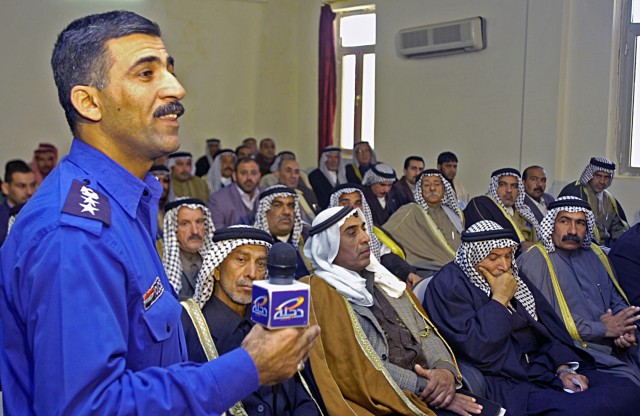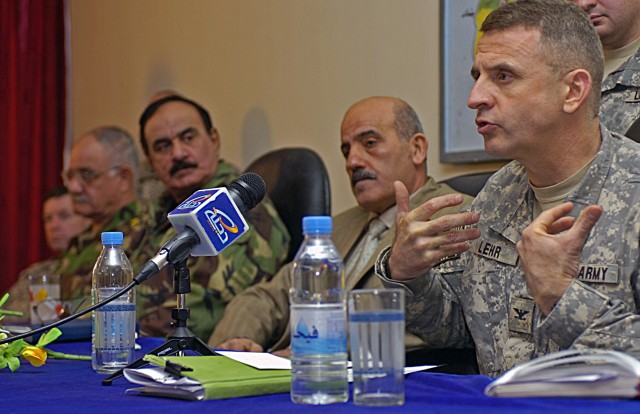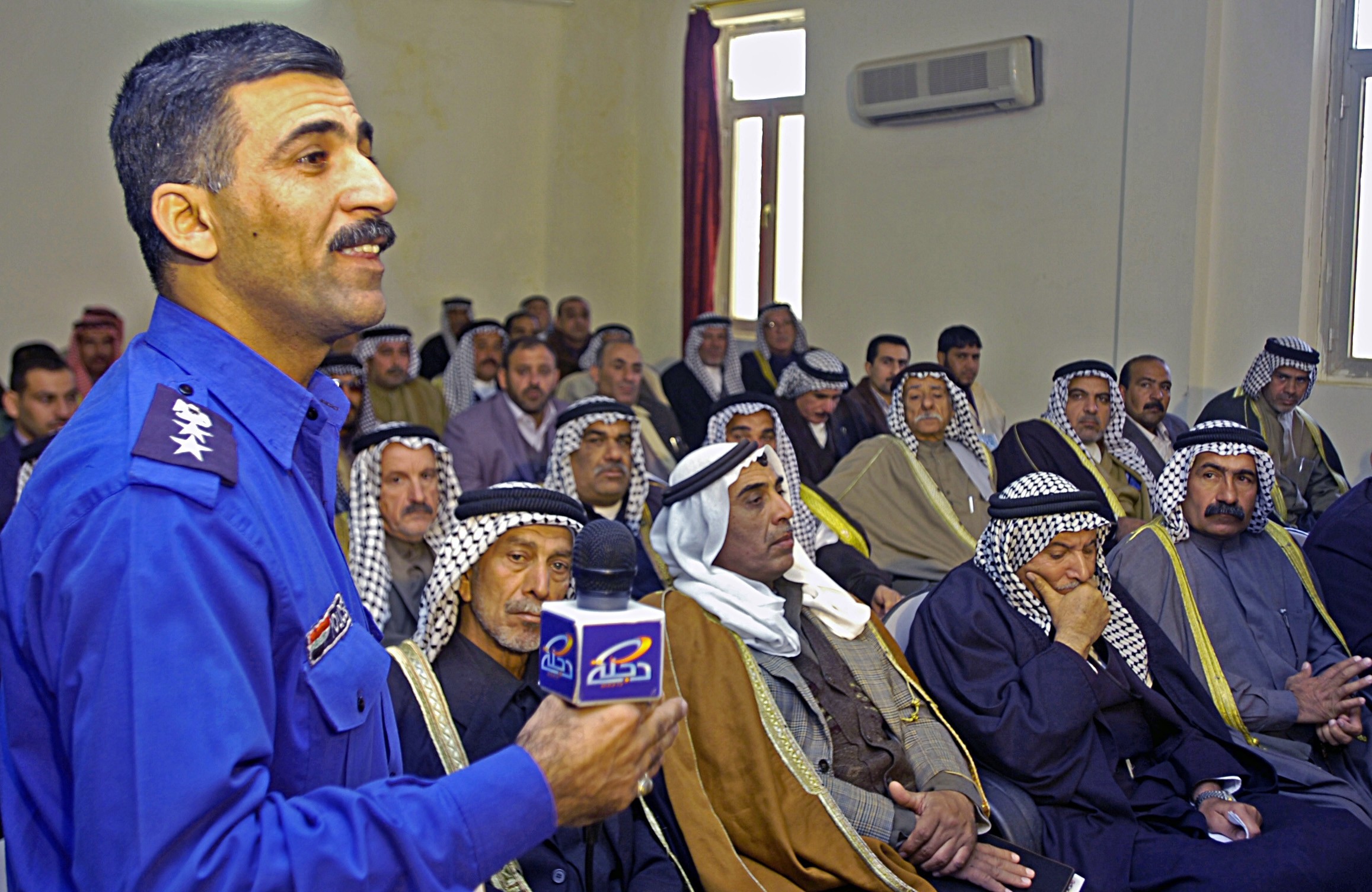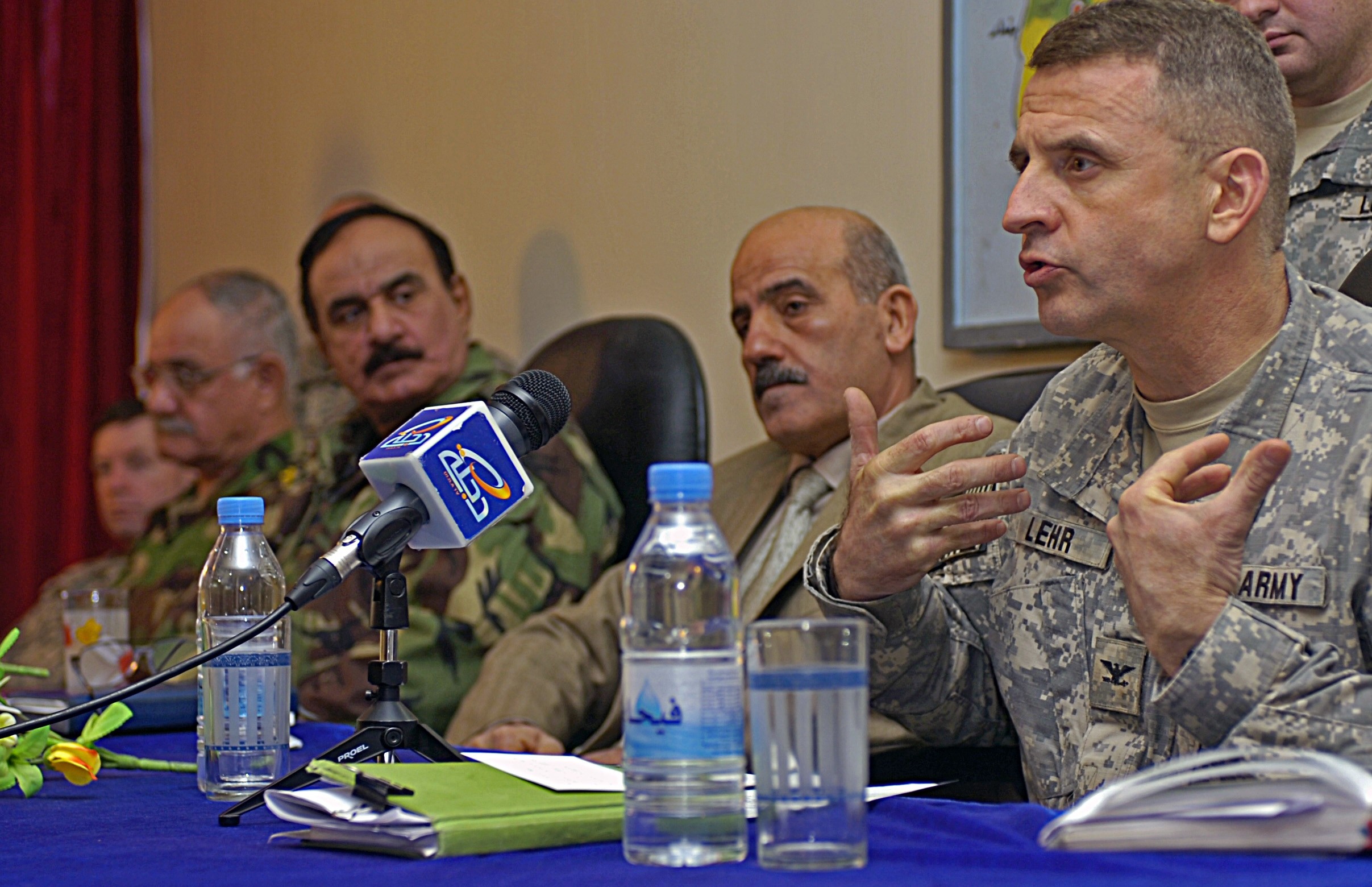BAQUBA, Iraq (Army News Service, Dec. 28, 2007) -- Tribal leaders of Khalis and Hibhib in Diyala province held a reconciliation meeting at the Governance Center here Dec. 27.
The meeting marked the end of Operation Raider Reaper, a month-long campaign conducted by the 4th Stryker Brigade Combat Team, 2nd Infantry Division and several companies of the Iraqi Army 5th Division. The focus of the operation was to clear al-Qaida and insurgents from Diyala province. The meeting focused on keeping the peace post-Raider Reaper, ending sectarian violence and finding a means to bring displaced families back to their homes.
Every sheik who attended the meeting took an oath and signed a written agreement. The agreement stated that the sheiks would work together to stop attacks against Coalition and Iraqi Security Forces, deny use of land for insurgents, follow the government's laws, resolve tribal conflict through the sheiks, guarantee equal rights regardless of sect, and allow the displaced families of Diyala to return to their homes regardless of sect.
Speakers at the meeting included Iraqi Army 5th Division Commander Staff Maj. Gen. Salim Karim Salahl; Diyala Governor Ra'ad Rasheed Majeed; Diyala Operations Center Commander Iraqi Army Staff Maj. Gen. Abdul Kareem; Provincial Security Advisor Dr. Hussein Abdul-Mahaeed Alzubaidi; and 4-2 SBCT Commander Col. Jon Lehr.
"We as a central group have created a window for peace," Col. Lehr said. "We are separating insurgents and terrorists from society. We are doing this by raising concerned local citizen organizations, building Iraqi police stations where police stations have never been built and by reconciliation between tribes."
Several sheiks and tribal leaders of the Khalis and Hibhib area made their community issues public, as well, identifying problems and working towards solutions, Col. Lehr said.
The governor gave the opening statements.
"We are all families under one tent," Gov. Majeed said to the tribal leaders. "We are not enemies. It is not one village against another or one home against their neighbor. When we stand together against evil men, we stand stronger and end the violence in Diyala."
Dr. Hussein echoed the governor's sentiments.
"We can move beyond past wounds and hurt and move forward together," Dr. Hussein said. "Everyone who lives in Diyala province has been hurt by al-Qaida one way or another but, we need to move past that."
The meeting allowed the sheiks to voice particular issues with their tribes, but one theme ran common throughout the day.
"It is up to us to work hand-in-hand in order to bring back the refugees of Diyala," Maj. Gen. Kareem said. "The winter months are upon us and if we don't act now, where will they go'"
Achmed Mohamood Zobede, a sheik from the Hibhib area, said those in attendance at the meeting must work together to help those who left their homes in Hibhib.
"At this meeting we are all brothers," he said. "We need to return the displaced families of Hibhib back to their home whether they were taken or damaged. We need to put our focus and resources into it and we need Coalition Forces' help."
Several meetings have been held at the Governance Center but, this meeting's turnout was better than usual, said Capt. Gary Dunderdale, the 4-2 SBCT tribal affairs representative.
"This meeting was planned for the end of the clearing operation of Raider Reaper," he said. "We are aiming at the foundation of their society -- the tribes. We have to work from the ground up. In past meetings, many of the sheiks couldn't come here without Army escorts. Today more than three-fourths of those invited arrived without escorts."




Social Sharing